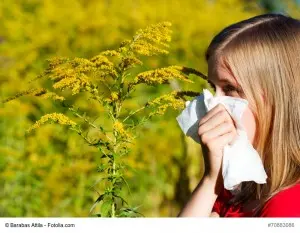Do your runny nose and itchy, watery eyes get worse when fall hits? You’re not alone. Fall allergies affect more than 35 million Americans. Here are the main contributors that trigger fall allergies:
 Ragweed
Ragweed
Ragweed can produce one billion grains of pollen in most parts of the South, North and Midwest. In the Midwest regions, ragweed pollination typically ends when temperatures drop and frost begins to develop. However, in areas of the South like Georgia, ragweed can cause irritation into the winter months.
Mold
Outdoor molds also cause fall allergies. Much like ragweed, outdoor molds cause the most irritation until the first frost. They are most commonly found in soil, composts and leaves.
Rare types of weeds
Though these types of weed are only seen in various parts of the country, goldenrod, curly dock, pigweed and sagebrush can also cause fall allergies.
How to Treat Fall Allergies
There are ways to manage your fall allergy symptoms, such as:
1. Buying a dehumidifier – Buying a dehumidifier helps manage symptoms if your runny nose and itchy eyes are caused by mold.
2. Avoid hanging clothes outside – Hanging clothes outside can cause pollen and ragweed to accumulate on your clothing.
3. Buy hypoallergenic filters – If you are sensitive to fall allergies, buying a hypoallergenic filter and changing it monthly can minimize your symptoms.
4. Keep your air conditioning on at night – Keeping air circulating in your home stops pollen from accumulating.
5. Consult Dr. Oliver provides treatment options and testing for patients suffering from fall allergies. Contact our office today at (912) 355-2335 to schedule an appointment.

 Ragweed
Ragweed